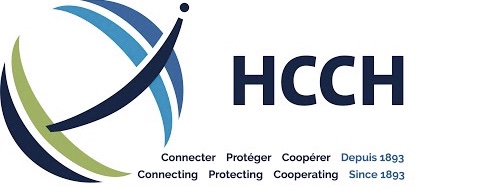Regulation (EU) 2020/1784 of the European Parliament and of the Council of 25 November 2020 on the service in the Member States of judicial and extrajudicial documents in civil or commercial matters (service of documents) has been published in the Official Journal of the European Union on 2 December 2020 (L 405). It entered into force twenty working days after this date and is applicable from 1st July 2022. With a view to its proper application, you will find some clarifications and advice below.
- Use of new forms
Since 1st July 2022, any request for service must be sent using the new forms of Regulation (EU) 1784/2020. It includes twelve forms, i.e., five more than the previous Regulation (EU) 1393/2007. These new forms are:
- Request for service of documents (Form A, mentioned in Articles 5 and 8);
- Request to determine the address of the person to be served (Form B, mentioned in Articles 5 and 7);
- Reply to the request to determine the address of the person to be served (Form C, mentioned in Article 5);
- Acknowledgement of receipt (Form D, mentioned in Articles 5 and 10);
- Request for additional information or documents for the service of documents (Form E, mentioned in Articles 5 and 10);
- Notice of return of request and document (Form F, mentioned in Articles 5 and 10);
- Notice of retransmission of request and document to the appropriate receiving agency (Form G, mentioned in Articles 5 and 10);
- Acknowledgement of receipt by the appropriate receiving agency having territorial jurisdiction to the transmitting agency (Form H, mentioned in Articles 5 and 10);
- Request for information on service or non-service of documents (Form I, mentioned in Articles 5 and 11);
- Reply to request for information on service or non-service of documents (Form J, mentioned in Articles 5 and 11);
- Certificate of service or non-service of documents (Form K, mentioned in Articles 5, 11, 12 and 14);
- Information to the addressee about the right to refuse to accept a document (form L, mentioned in Articles 5 and 12).
Transmitting agencies are required to complete Forms A, B, C and I.
Receiving agencies are required to complete Forms D, E, F, G, H, J, K and L.
The addressee of the document is required to complete and return Form L given to him by the receiving agency or the authority responsible for the service of document on this occasion.
At the time of writing this article, the new forms have not been published on the e-Justice portal. We also invite you here to consult regularly the portal in order to be able to fill out your request for service directly. Information can be found by clicking on the following link:
https://e-justice.europa.eu/321/FR/european_judicial_atlas_in_civil_matters
However, you can find the new forms accompanying the regulation as published in the Official Journal of the European Union by clicking on the following link:
https://eur-lex.europa.eu/legal-content/FR/TXT/PDF/?uri=CELEX:32020R1784&from=EN
(subject to subsequent modifications)
- Electronic signature of documents and forms (Article 5.3)
Where the documents to be served, requests, confirmations, receipts, certificates and other communications referred to in paragraph 1 of Article 5 require or feature a seal or handwritten signature, these may be replaced by qualified electronic seals or qualified electronic signatures as defined in Regulation (EU) 910/2014.
According to the UEHJ, the electronic signature of the document can be used from 1st July 2022 provided that this electronic signature complies with the requirements of Regulation (EU) 910/2014. We invite you, as a precautionary measure, to contact your software provider in order to check whether your electronic signature meets the requirements of Regulation (EU) 2020/1784.
- Refusal to receive a document (Article 12)
We inform you of two changes:
- From 1st July 2022, the receiving agency informs the addressee of the right to refuse to receive the document to be served when this document is not written in, or is not accompanied by a translation into a language referred to in point (b) of paragraph 1 of article 12 – the official language of the Member State addressed or, if there are several official languages in that Member State, the official language or one of the official languages of the place where service is to be effected -, by attaching to the document to be served the new Form L which appears in annex I, which is provided:
- In the official language or one of the official languages of the Member State of origin; and
- In the official language of the Member State addressed or, if there are several official languages in that Member State, the official language or one of the official languages of the place where service is to be effected.
If it appears that the recipient understands an official language of another Member State, the L Form set out in Annex I is also provided in that language. It is therefore no longer necessary to attach the L form in all the languages of the European Union as was the case in Regulation (EU) 1393/2007.
- From 1 July 2022, the addressee may refuse to receive the document either at the time of service, or within two weeks from service – and no longer 7 days as provided for in Regulation (EU) 1393/2007 -, by making a written declaration of refusal of acceptance.
- Assistance in address enquiries
Article 7 of the Regulation requires Member States to provide a service enabling the addressee of the document to be located, when the transmitting agency responsible for transmitting the document to be served does not have a known address in another Member State, namely:
- Providing for designated authorities to which transmitting agencies may address requests on the determination of the address of the person to be served;
- Allowing persons from other Member States to submit requests, including electronically, for information about addresses of persons to be served directly to domicile registries or other publicly accessible databases by means of a standard form available on the European e-Justice Portal;
- Providing detailed information, through the European e-Justice Portal, on how to find the addresses of persons to be served.
It is up to each country here to communicate to the European Commission how this country provides this service in order to find the address of the recipient of the document when this address is unknown. To date, no information has been published on the European Commission’s e-Justice portal. However, we invite you to be cautious and to regularly check on the site whether communications have been published by clicking on this link:
https://e-justice.europa.eu/321/FR/european_judicial_atlas_in_civil_matters
- e-Codex
One of the major changes of Regulation (EU) 2020/1784 concerns the compulsory use, between the transmitting and receiving agencies, of a decentralised IT system, made up of interconnected national IT systems in order to be able to carry out the transmission of judicial and extrajudicial documents as provided for in the new Article 5 of the regulation. This decentralised system is the e-Codex. All communications and all exchanges of documents between the agencies and bodies designated by the Member States should, in principle, be carried out by means of a secure and reliable decentralised IT system, composed of national IT systems which are interconnected and technically interoperable, for example, and without prejudice to further technological progress, based on e-Codex.
This modification has no influence on your transmissions, which will take place from 1st July 2022, since this system will only become compulsory in March 2025, in order to give time for the European Commission to create the platform allowing this transmission through e-Codex.
- Direct electronic service
A second major change in the recast of Regulation (EU) 2020/1784 concerns direct electronic service. It should now be possible to have documents served directly electronically on a recipient who has a known address for service in another Member State.
The conditions for having recourse to this type of direct electronic service should be such as to guarantee that service is effected by electronic means only by using electronic means available under the law of the State member of the lex fori for the national service of documents, and also to guarantee the existence of appropriate safeguards to protect the interests of the addressee, in particular high technical standards and the obligation to obtain the express consent from the addressee.
The regulation provides, in its recitals 32 and 33, the guarantees necessary for such electronic service to respect the rights of the parties involved. It concerns in particular:
- The recipient’s prior express consent;
- The acknowledgement of receipt by the recipient;
- The possibility for any Member State to specify the additional conditions under which it will accept service by electronic means.
No communication appears on the e-Justice portal at the time of writing this article so that you are also advised to consult the portal page regularly by clicking on the following link:
https://e-justice.europa.eu/321/FR/european_judicial_atlas_in_civil_matters
Finally, the case law of the EUCJ pronounced with regard to Regulation 1393/2007 should mutatis mutandis retain its relevance.
We wish you a good use of the regulation!





